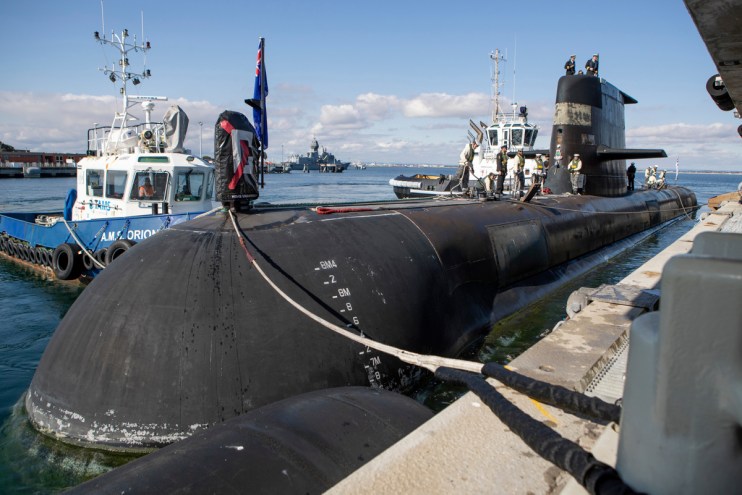Babcock: Geopolitical tensions boost FTSE 250 firm’s revenue

Heightened geopolitical tensions and the ramping up of defence spending across western countries has helped Babcock International to strong increases in organic revenue and underlying profit.
The FTSE 250 defence firm, which in March won a bumper £560m contract to refit one of the Royal Navy’s Trident nuclear submarines, saw its underlying profit jump 34 per cent in the year ended March 31 despite swallowing £90m loss on a major contract with the navy. It also booked a £17m profit on a property disposal.
Organic revenue also increased 11 per cent on the back of particularly strong years for its land and nuclear divisions, the latter of which is the main provider for the government’s nuclear deterrent.
The firm’s underlying profit margin improved to 5.4 per cent, and its free cash flow of £160m was significantly ahead of expectations and last year’s figure of £75m.
Excluding the loss on the Type 31 contract, the company said its operating margin was seven per cent.
The positive results come amid continued issues with its Type 31 contract for five ships which cost the firm nearly £100m this year alone.
Signed in 2019, the work on the ships has involved higher-than-expected costs, which resulted in a high-profile dispute between Babcock and the Ministry of Defence (MoD).
The firm’s management has recommended a full year dividend of 3.3p, a doubling of its half-year payout for shareholders.
Babcock’s net debt fell by £129m in 2023, thanks to strong cash generation, and its pension deficit halved from roughly £400m last year to £200m.
In March, the firm’s boss, David Lockwood, joined his counterpart at Airbus to call for greater defence spending, which became a feature of this summer’s general election.
The firm said it expected another year of “progress” for fiscal 2025.
